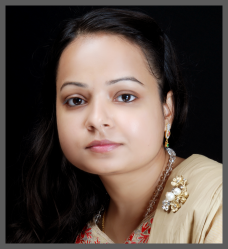Employment: For most Bhutanese graduates and jobseekers, becoming an entrepreneur may not be an enticing career to pursue. The concept of entrepreneurship in Bhutan was realised only very recently, failing to attract more takers.
While being an entrepreneur has benefits, it also has several challenges. In order to decipher the reason why Bhutanese amidst the rising unemployment issues do not consider this sector promising, a panel discussion on education system favourable to entrepreneurship development was held on November 15 as a part of the global entrepreneur week in Thimphu.
Citing several examples and anecdotes, the panellists gathered suggested that it was time the education system of the country thought of a higher level in terms of preparing the students for gainful employment.
Some 80 aspiring entrepreneurs gathered at the discussion were asked who wanted to become a doctor at one point of their life. A few hands went up in the air. “Who wanted to become an astronaut?” The number of hands in the air decreased.
Sangay Tshering, founder and CEO of Druk Host, said that young kids in school need to be taught entrepreneurial skills from the very beginning if they are interested in it.
“If you start programming your mind as a kid, definitely by the time you are older you will be much better,” he said. Sangay Tshering said that in Bhutan kids start school by the age of six and by 21 they complete their graduation.
“What does a 21-year-old have on his mind? Probably to have fun, think about a life partner and so on. And suddenly, you are asked to become an entrepreneur,” he said. “If you haven’t programmed yourself by this age, and when somebody expects you to become an entrepreneur with three or six months of training, this will be difficult.”
The president of the Royal Thimphu College, Thakur Singh Powdyel, said the fact that education has taught an individual to combine the limited number of letters and sounds in the alphabet to form words and structures to express oneself and to communicate is enterprising in itself.
The word entrepreneur has a French origin, meaning adventure. “Education is an adventure,” he said. “A very dynamic education system has helped us reached where we are today. The future is very promising. We have come a long way, but we have much longer way to go.”
Thakur Singh Powdyel added that being entrepreneurial makes people creative. It makes people industrious and able to perform. “When people are able to produce what they need, they become less dependent on others,” he said, adding that entrepreneurship has a very strong correlation with self-reliance and independence of a nation.

Priyanka Singh special report on Bhutan education – healthcare entrepreneur
Thimphu TechPark CEO, Tshering Cigay Dorji, said that the tertiary education level in Bhutan has taken some positive initiatives towards fostering entrepreneurship.
“In some of the colleges they have incubation cells where graduates who are entrepreneurial can learn. It would be good if these cells can be more active. Most of them are not very active right now,” he said, adding that subjects and programmes in schools oriented towards entrepreneurship can also help.
Sangay Tshering said that Bhutanese people lack the “drive” to pursue entrepreneurship. “This drive comes from passion. We need to go deeper into things, and start appreciating them. If you don’t know how to appreciate things, you won’t have that passion. Success nobody can promise, but drive is what you need.”
He said that in order to popularise the entrepreneurship sector in the country, there should be a few people who are successful in the sector. “We do have a lot of successful people in Bhutan, but we still need a lot more who can inspire people. Not everybody can succeed, but it’s worth trying.”
Sangay Tshering added that most of the Bhutanese graduates and jobseekers fail to make an impression and sell their talents to the employers.
“Entrepreneurship for me is about creation and if you cannot create an image of yourself you cannot sell yourself. And so you cannot sell anything else,” ! A well said phrase.
Source: kuenselonline


